Motorhome Generators – Choosing the best option for you
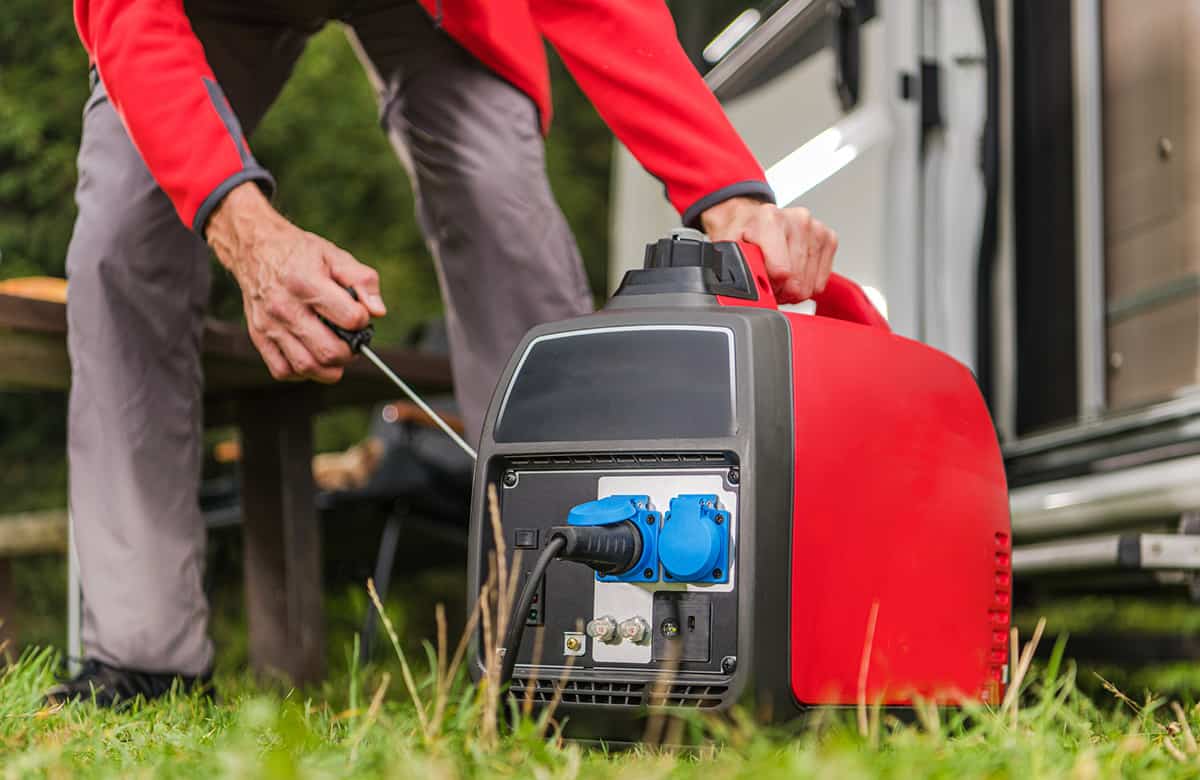
Looking at buying a generator for your motorhome, campervan or even caravan? Not sure what size generator you need or how to choose the best? Here’s everything you need to know about motorhome generators.
Don’t forget to grab your FREE motorhome maintenance checklist below to help you
*We work hard to make this the best motorhome travel blog and road trip website possible, full of helpful content for you. The website is supported by our readers, so if you buy through links on this site we may earn a commission- at no extra cost to you. All opinions remain our own.
If you find this post useful, you can also treat us to a coffee – we promise to enjoy it while creating more useful content like this- we might even indulge in a biscuit (or two!)
JUMP AHEAD TO...
Motorhome Generators- do you even need one?
Ok, let’s start with the obvious- do you even NEED a generator in your motorhome?
Honest answer?
No, you probably don’t. But you might want one…
When might you use a generator in your motorhome or campervan?
The point of most motorhome generators is as a backup power unit, so it’s there if you really need it. If you plan to spend most of your motorhome holidays using campsites, you will rarely have an opportunity to use a generator at all.
Even if you prefer to use aires or approved motorhome parkup spots, most of them aren’t places you can comfortably use a generator.
If you prefer off-grid parking/ wild camping with your motorhome, it’s also likely that you won’t use a generator very often, especially if you have another way to top up your leisure battery- like a solar panel.
Heck, in 3 years we only used our generator a handful of times, so it really shouldn’t be top of your essential motorhome accessories to buy list.
BUT… it’s those times when you REALLY need to boost your motorhome batteries, especially if you stay off-grid a lot, when you might benefit from having a gen-set on board.
Having said that, it is NOT one of the main things you need to go motorhome wild camping, so don’t think you need one in order to be able to stay away from campsites- that’s not the case.
Do we use a generator in our motorhome?
As I mentioned above, we carried a motorhome generator for 3 years. It was bulky, it was heavy and I could never start the thing.
And, EVERY SINGLE TIME we used it was so we could charge our laptops.
So, we’ve now traded the generator for a portable power bank, which suits our needs much better. We also don’t stay in one place for several days, which is when a generator becomes invaluable.
Here’s how to decide if a generator or a powerbank is best for you:
We hope you found the video useful. If you did, we’d love it if you followed us on Youtube. New videos with tips for motorhoming and campervanning in the UK and Europe are released weekly.
So, whilst we no longer use one, they are still useful for the right people. Read on to help choose what’s best for you.
What is the best portable generator for a motorhome or camping?
We are firm believers in there rarely being one ‘best’ product for everyone. And it’s the same for motorhome generators.
Having said that, there are a few we recommend for various reasons throughout this post. If you’re in a hurry, here’s a round-up:
- One of the best rated motorhome and camping generators on the UK market
- One of the quietest motorhome generators available
Pros and Cons of having a motorhome generator onboard
After a few months with a van, we realised we prefer motorhome wild camping/ off-grid parking. And we like staying up mountains/ in forests/ in the middle of nowhere. And we like to do that for as long as physically possible.
We also work as we travel, so both of us need ways of recharging our laptops, phones, iPads (not to mention our beloved travel drone)
We have a solar panel which helps top up our motorhome leisure battery, but there have been a few times where we’ve needed a little helping hand. A little ‘boost’ to help charge the devices which can’t be powered by 12v (like my Macbook Pro before the 12v charger).
Don’t forget, if you don’t have mains power, you won’t be able to use any 240v/ 230v devices (3-pin plug), like a hairdryer, microwave, electric kettle or charger. With a generator of sufficient output, you can.
So that’s the biggest pro of having a generator in your motorhome- it allows you to get power for things you need when you otherwise can’t. For us, it’s invaluable but if we didn’t need to work, it would definitely be a lot lower down the list.
Cons of a motorhome generator
There are several downsides to carrying a generator onboard your motorhome or camper:
- Initial cost
- Space- finding somewhere to store it
- Weight- it eats into your motorhome payload
- Having to carry fuel for it
- Maintenance
- Noise
All of these things are big reasons not to buy a generator- and they’re valid reasons. We only got one when we decided we were going motorhoming in Norway and knew we wanted to stay away from campsites for as long as possible.
Still, if you’re still convinced you want a generator for your motorhome or campervan, here’s how to choose the best option for you.
How to choose the right motorhome generator for you
Let’s be honest, most of us are conditioned to think that bigger is better (no sniggering in the back row please… ?) However, just like we discovered there were some big downsides to a motorhome over 3.5tonnes, we also realise that you don’t need to buy the biggest portable generator possible, even if you can fit it into a locker and you magically have the payload to spare.
There are several things to look for:
- Physical size
- Weight (both to lift AND towards your motorhome payload)
- Power output level (and frequency) – UK is 230v/ 50hz
- Noise output level
- Fuel type
- Socket type
- Starting method (I HATE pull starts, even though that’s what we have- but button starts are so much easier!
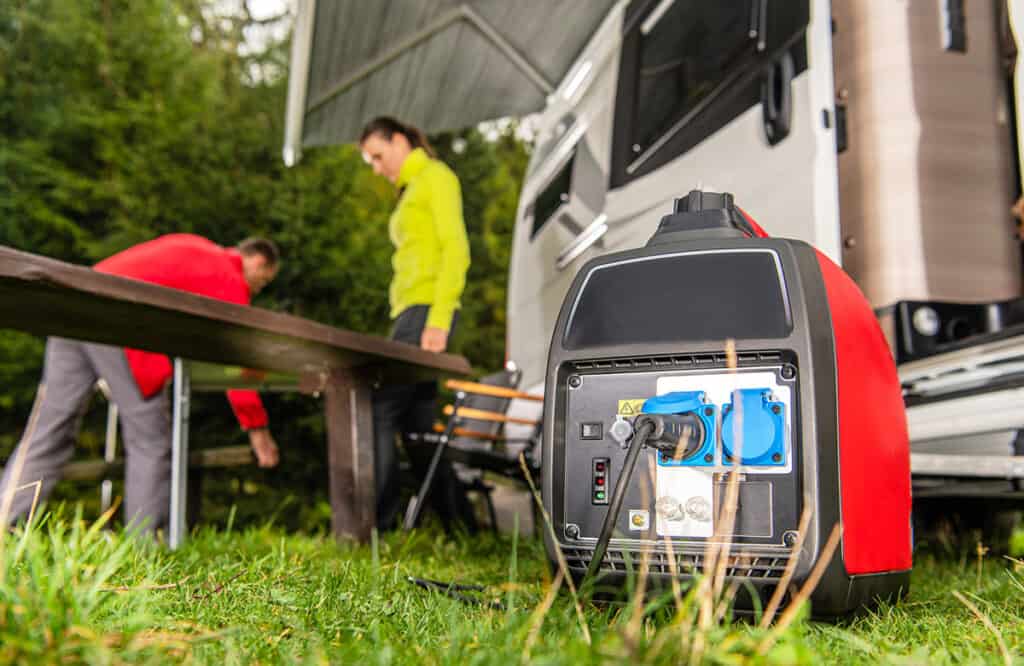
What size generator do you need for a motorhome?
There are two types of size to consider- the physical size of the genset, and the amount of power it produces.
Physical size
Physical size is fairly obvious- does it fit where you want it to go when it’s being stored? Whether you need to put it under a seat (as we do), or you’re lucky enough to have a motorhome with a garage or external storage locker, you need to make sure it will physically fit where you want.
Don’t forget to consider height, as well as width and depth- many potential motorhome generators are too tall to go under a seat, especially with a cross beam.
We also don’t recommend a generator with wheels, as it takes up too much room. However, if you have a garage, you might prefer a type with wheels so it’s easier to move, especially if you have a ramp.
Weight
The other thing to think about is the weight. The weight & payload of your motorhome is an obvious consideration, but so if the fact that you will need to lift it in and out of your motorhome or camper. If it’s too heavy, you’re either going to injure yourself, or never ever use it because it’s too heavy to get out- which defeats the point of buying it.
As a (very) rough guide, a 1000w model weighs about 15kg, but a 2000w generator could weigh over 20kg.
Power Output- how big do you need?
So, how much power do you need in a motorhome generator? What size is sufficient?
The obvious answer is ‘the one which allows you to run and use whatever you want to run and use’. If you just want to top up your leisure battery, or give phones/ iPads a quick charge, you can get away with as little as a 1kw generator.
If you want to use anything which is over 1000w in power (look at the label on the device), then you’ll need a generator capable of handling that. For example, many hairdryers are 1800w. To run one, you’d need a generator of at least 1800w PLUS make sure to add a bit (around 20%) for resistance and other loads. I
f you’re planning to use your generator for something with moving parts (like a pressure washer), you need to add even more- around 50%
NOTE: Many portable generators have a ‘maximum’ wattage and a ‘constant or continuous wattage’ value. This means it can handle a higher load for a short period of time (whilst starting up an air conditioning unit or van heater for example), but then it needs to drop down to a running level. So look at the continuous or running wattage as the main figure for prolonged use. There’s a great post here that gives you a guide to some common power usage rates (remember each appliance differs so be sure to check your labels.)
Also, don’t forget the generator needs enough power to run several things at once. It’s highly unlikely you’ll JUST run a hairdryer. You might use the time it’s on to charge electronics, watch TV, cool the fridge, run the air-con, or use the microwave. Make sure to account for all this- or remember to turn one thing off before using another.
But, of course, the bigger the wattage, the heavier and bigger the generator usually is- so it’s all a trade-off. If you need a generator for camping, you need to make sure the weight isn’t so heavy you can’t lift it.
You also need to check the frequency. Most UK generators are 50Hz (UK standard). This is important for using appliances like motorhome TVs, so be sure to check any device you might want to use with the generator, especially if it’s not a UK appliance with a UK generator.
Pure Sine Wave/ Inverter
If you’re planning to power something which needs a smooth power, get something with either pure sine wave or inverter power. (Nope, I’m not an electrician and I’m not even going to try to explain that. All you need to know is that they provide ‘smooth’, constant power, so sensitive devices like game consoles, TVs, laptops etc don’t break due to a power surge or dip. If you’re an electrician, feel free to leave a comment below explaining that better! 🙂 )
Want more tips for motorhoming?
Here are some more ideas you might find useful:
- Essential Motorhome accessories every van should have
- Best Sat-nav for motorhomes or campervans
- Motorhome Security– tips for at home and on the road
- How to get Internet & wifi in a motorhome
- Europe- essential gear for travelling to Europe
- Best gift ideas for motorhome and campervan owners
Want FREE checklists, eBooks and additional tips to help? Visit our resource page
How noisy are motorhome generators?
Ok, this is one of the biggest things to consider when choosing the best motorhome generator. Of course, you’ll mainly be using it in the middle of nowhere, but the quieter it is, the more discreet you’ll be.
Don’t believe the ‘silent generator’ hype you hear- ALL generators are engines and make some kind of noise. Loud noise. Ours is fairly quiet (compared to others we’ve experienced) and it’s still pretty loud, especially when you’re outisde.
If you are planning to use your generator near other vans, we aways recommend using it during daylight hours AND asking the other vans nearby first. A little politeness never hurts. Most campsites don’t allow generators to be run during night hours.
We recommend putting your generator in a sheltered spot, ideally a little way away from your camper (if possible) and ideally behind a wall or some rocks- makes it quieter for everyone. Having said that, be aware of security- generators are attractive to thieves so don’t put it too far away and be alert whilst using it. Don’t leave it outside overnight.
What’s the quietest portable generator for camping?
As you can see below, there are a couple of generators we recommend which are under 60db (which is about as loud as background conversation in a restaurant.)
The quietest we have heard good things about are:
Compatibility
Most UK vans use 230v/ 50hz and require a live, neutral and earth. If your generator is not created for the UK market, it may have different levels, which you then need to check are compatible both with the appliances AND the power unit in your motorhome or campervan.
Using a generator not compatible with your vehicle could invalidate the warranty- and can even cause a fire in the motorhome.
NOTE: Many portable generators do not have a seperate earth, which can cause some systems to state their is a fault. Consult the handbook or contact the manufacturer if this happens to you.
Socket Type
The generator will have several sockets. These are likely to include either a UK 3-pin plug, or a motorhome power socket. Some also have 12v sockets for charging devices.
IMPORTANT: Commonly, these sockets are NOT waterproof, so don’t use or leave your generator in the rain or damp conditions.
Some of the best motorhome generators in the UK
Here are some of the best generators for motorhomes, campervans, caravans and camping in the UK at the moment.
Böhmer-AG Camo Petrol Inverter Generator
- Brand: Böhmer
- Dimensions: 48 x 29 x 41.5 centimetres
- Weight: 24kg
- Max output: 1900w
- Continuous Output: 1700w
- Engine Type- 4 stroke
- Fuel tank capacity: 4 Litres
- Max run time: 6 hours
- Sockets- two 240V 3 pin UK plug outputs and a 12V DC output
- Noise level: 59dB
- Pure Sine Wave Output- gives uninterrupted power suitable for sensitive electronics & digital equipment
- Recoil Start
- Advanced overload detection and low oil warning
- 24 month warranty with UK support
Briggs & Stratton Portable Inverter Generator
The inverter technology produces smoother power, meaning you can safely recharge and power sensitive electronics like TVs, laptops, smartphones and gaming systems.
- Brand: Briggs and Stratton
- Dimensions: 58 x 36 x 49 cm 58 x 36 x 49 cm; 22.8 Kilograms
- Weight: 22.8kg
- Max output: 2400w
- Continuous Output: 1800w
- Fuel Type- petrol
- Fuel tank capacity: 3.8 Litres
- Mad run time: 8 hours (at 25% load)
- Sockets- two 230V 3 pin UK plug outputs,a 12V DC output, two 5V USB ports
- Noise level: 58dB
- Automatic Low Oil Shut Down
- CO Guard Carbon Monoxide Shutdown
- Requires 0.5 litre SAE30 4-stroke oil for the engine
- Pull Start
Hyundai P1 4 Stroke ‘ECO’ Portable Inverter Generator
- Brand: Hyundai
- Dimensions: 49 x 27 x 44 cm
- Weight: 22kg
- Max output: 2200w
- Pure sine wave output- can safely power sensitive electronic appliances
- Fuel Type- petrol
- Fuel tank capacity: 3.8 Litres
- Mad run time: 4.2Hrs Run Time (50% Load)
- Sockets: 1 x Standard UK 3 Pin Plug Outlet, 1 x 12 DC Outlet and 1 x USB Charging Outlet
- Eco Mode : lowers the engine rpm to increase fuel economy and reduce noise
- Noise level: 67dB
- Automatic Low Oil Shut Down
- Pull Start
Wolf Inverter Generator- one of the lightest available
- Brand: Wolf
- Dimensions: 48 x 25.5 x 42.5cm
- Weight: 15kg
- Max output: 1200w
- Continuous: 1000w
- Fuel Type- petrol
- Fuel tank capacity: 3Litres
- Max run time: 6 hours (50% Load)
- Sockets: 1x 230V 13Amp Socket, 12v 4Amp DC Output
- Econo Switch: allows the generator to idle when no power is being drawn
- Noise level: 58dB
- Automatic Low Oil Shut Down
- Pull Start
Clarke IG1200B 1100W inverter generator
This is the motorhome generator we have. It’s not top of the range- and the price reflects that, but we’ve used it without issue whenever we’ve needed it. Personally, I think it’s highly under-rated and we’d definitely buy it again.
- Brand- Clarke
- Dimensions: 48.8 x 42 x 25.8 cm
- Weight: 13.42 Kilograms
- Continuous output – 1000W
- Max output – 1100W
- Sockets 13A 230V x1
- Fuel tank capacity – 3 Litres
- Running time on full tank – 5.5hrs
- Noise LWA – 93dB(A)
- Recoil/ Pull Start
Does Fuel type matter for camping generators?
Not really. Whatever fuel it uses will be something you’ll need to carry a small can of (in an approved container!) Remember, you can normally store propane for an indefinite time, whereas diesel has a shelf life of between 6 and 12 months and unleaded only about 6 months in an unsealed container.
Does it have to conform to EU5 or EU6 standards?
This is an excellent question we were asked recently: if you’re buying a new motorhome generator, does it need to conform to EU5 or EU6 standards? There are portable generators on the market which proudly state their conformance, but they currently cost WAY more than others on the market- is it worth the extra money and do you NEED to buy one?
Obviously, in an ideal world, we would all buy engines which help reduce emissions and conform to the new standards. But, just like it’s still legal to buy a car which doesn’t conform, it’s still legal to buy an occasional-use generator which doesn’t confirm.
Personally, I don’t believe it’s worth spending all that extra money on something you’re probably only going to use for a few hours a year. There aren’t emissions checks or maintenance checks like there are on other types of engines or more permanent generators, so (for now) I believe you’re perfectly ok getting whichever generator works best.
How to connect your motorhome generator
This bit is pretty easy. The hardest bit is making sure you have bought the correct adapter to link from the generator to your motorhome. The gen-set could use a motorhome power lead (in which case, you can usually use the same one you do for mains power), or it’s a 3-pin plug (so you need to buy a lead like this).
How to use a motorhome generator (step by step)
- Take the generator outside
- Do any maintenance which needs doing (including adding fuel if necessary)
- Start the generator
- Let it warm up for a few minutes without load (ie- without it being plugged in)
- Plug in ( plug into the motorhome first, then into the generator)
- Turn on appliances one at a time, so it’s a gradual build-up instead of a sharp shock
- Monitor for a while to make sure everything is ok, then use
- Remove power lead BEFORE you turn off
- Turn off (you can do this quickly)
- Leave to cool down
- Drain if required
- Store away
How long can a motorhome generator run?
Ok, don’t get confused between the big RV generators (which can be used while the RV is running or even being driven in some cases), and a UK/ European motorhome/ campervan portable generator. Our version is meant to be used as an occasional use backup, not run for 8-14 hours non-stop!
Of course, every generator is different, and many can be run for as much as 6 hours, but we’ve never run our generator longer than a couple of hours. We’ve never needed to; once everything is fully charged and we’ve used what we’ve needed to, we turn it off.
Keep a log of the hours run
We highly recommend keeping a running tally of the number of hours you use the generator for. You could put a bit of paper inside your motorhome manual, or even better make a note of it in your motorhome logbook.

Motorhome Generator maintenance
It is important to maintain your generator, so that it is available for you to use when you need it.
Be sure to give it a visual inspection every time you get it out and listen for any changes in speed or noise- that could detect an issue which needs fixing. You will hear a difference in the engine noise as you switch appliances on and off (as the load demands change) but also listen for anything outside this.
Other yearly/ regular maintenance checks might include:
- Fuel filters- change every 2 years or 400-500 hours (check manufacturers handbook)
- Engine oil, filters, air cleaner (if used)
- Oil levels
- Valves, slip rings and brushes
- Exhaust system
- Drain water from fuel system (diesel generator)
- Check fuel supply lines and other rubber hoses
Like most engines, generators are not great if they’re not used often. Be sure to maintain, clean and run them regularly, even if you don’t need them right then.
Other posts you might find useful:
- The most useful motorhome accessories every van needs
- Motorhome cleaning– everything you need to know
- A step-by-step guide to motorhome leisure batteries
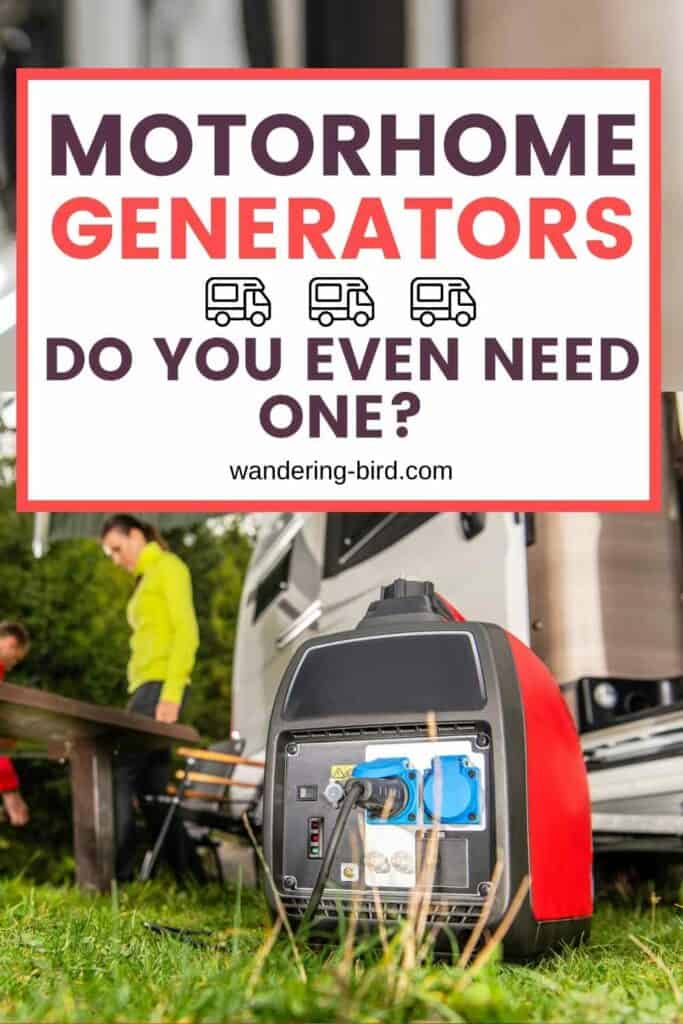
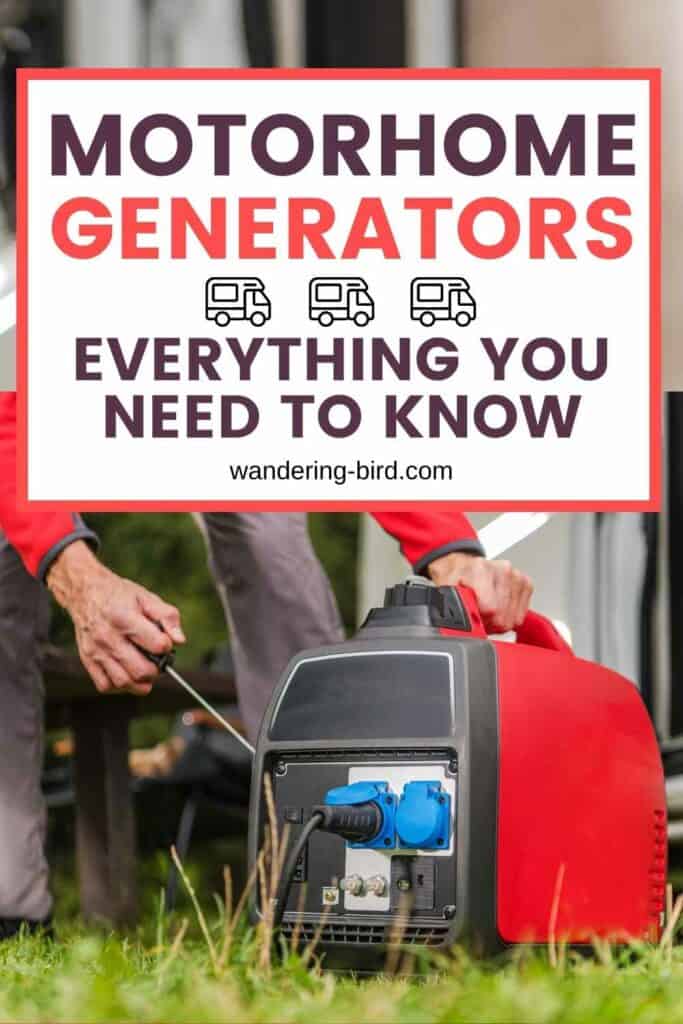

Kat never planned to buy a motorhome. She also never planned to quit her job as an air traffic controller, go touring around Europe in said motorhome, start one of the UK’s largest motorhome travel websites… or get a cocker spaniel.
Find out how she went from stuck in the rat race to being a digital nomad and inspiring thousands of people to have their own epic adventures here.
If you’d like to connect with Kat, send her an email or follow her adventures on social media.
Last update on 2024-04-25 / Affiliate links / Images from Amazon Product Advertising API


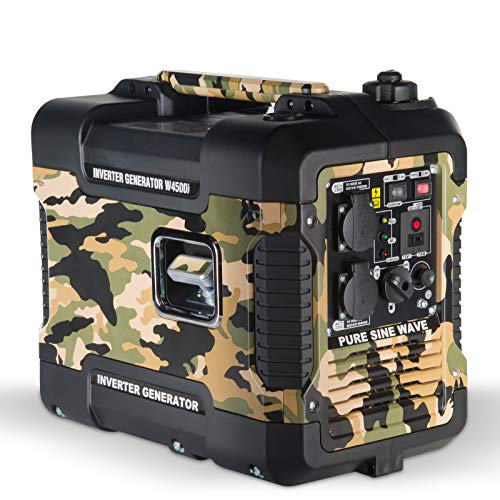



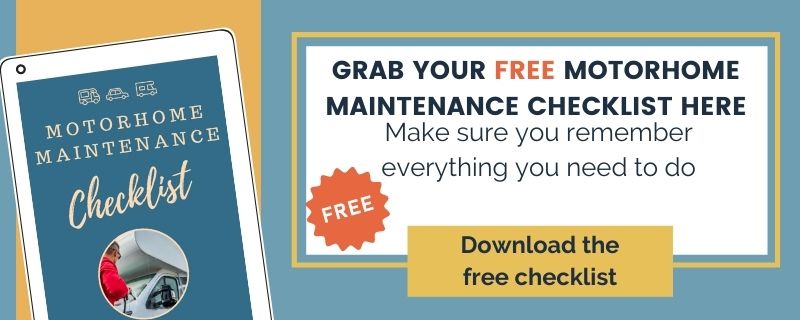
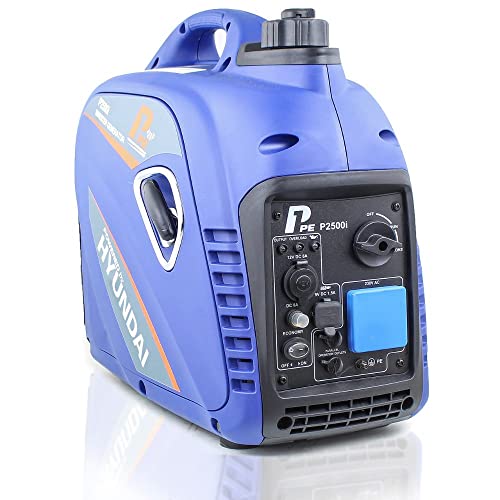




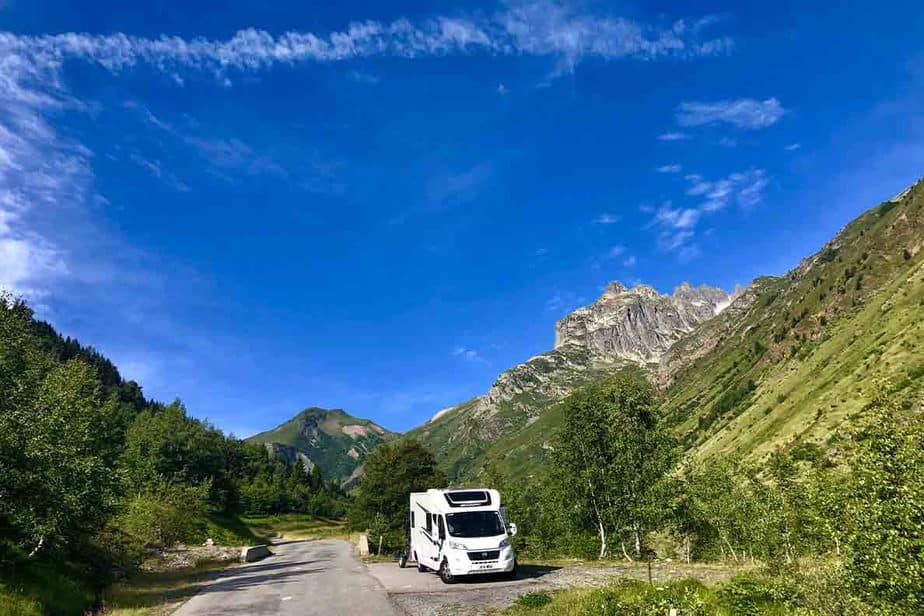
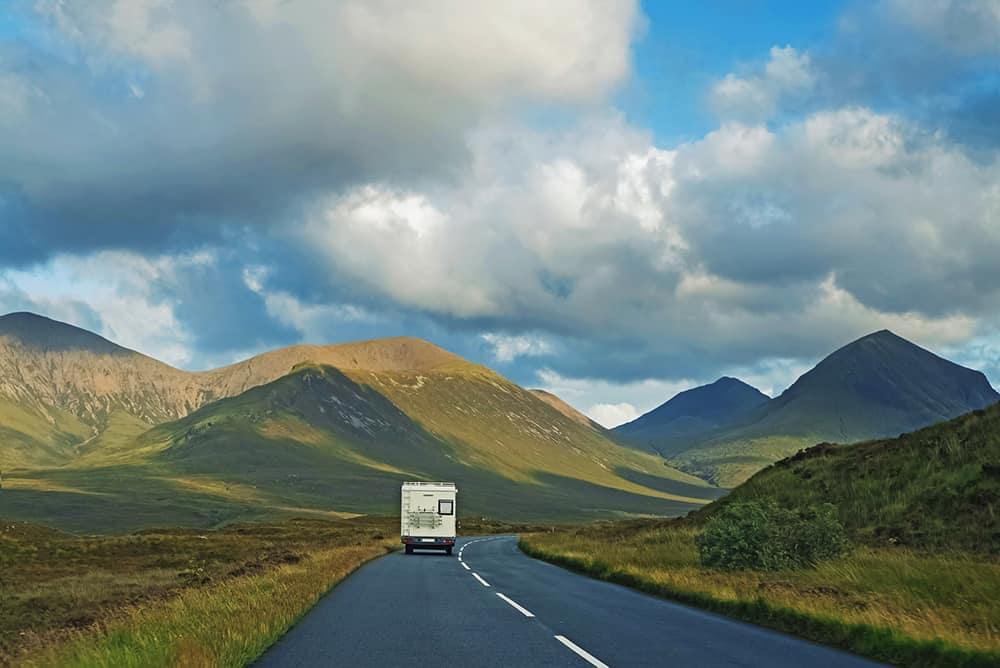
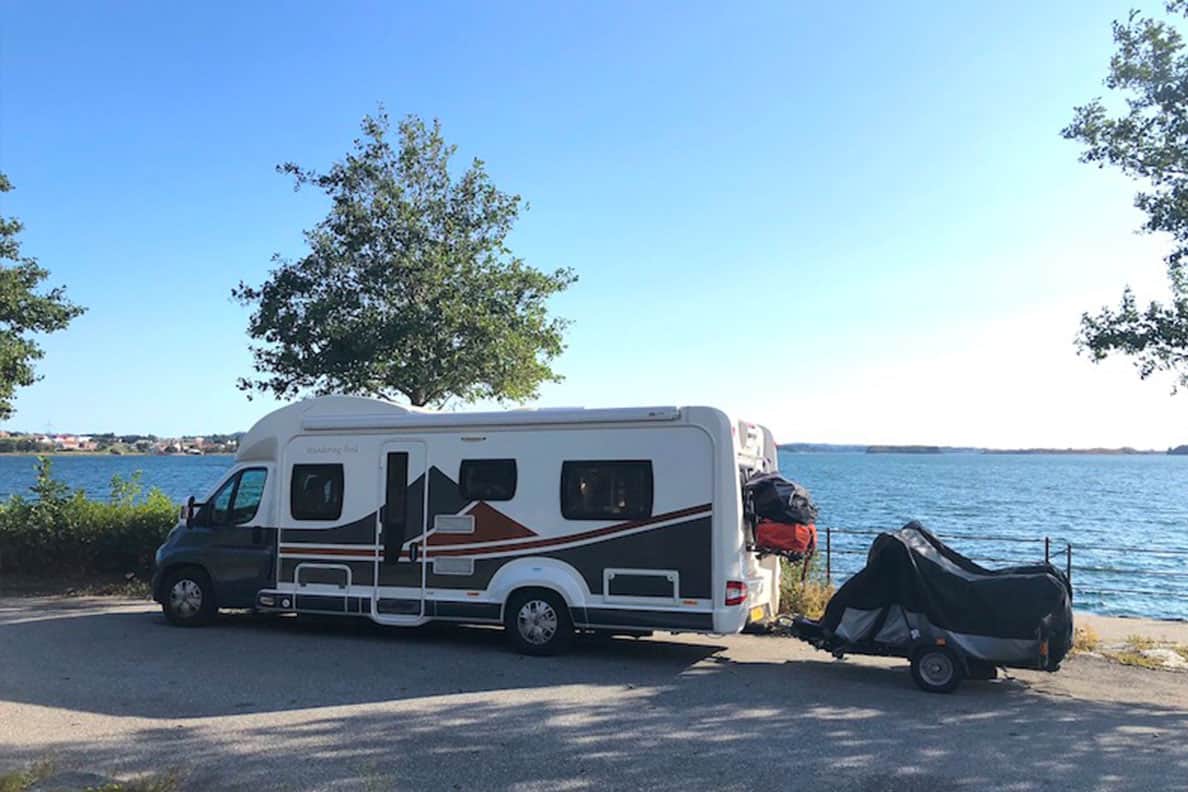
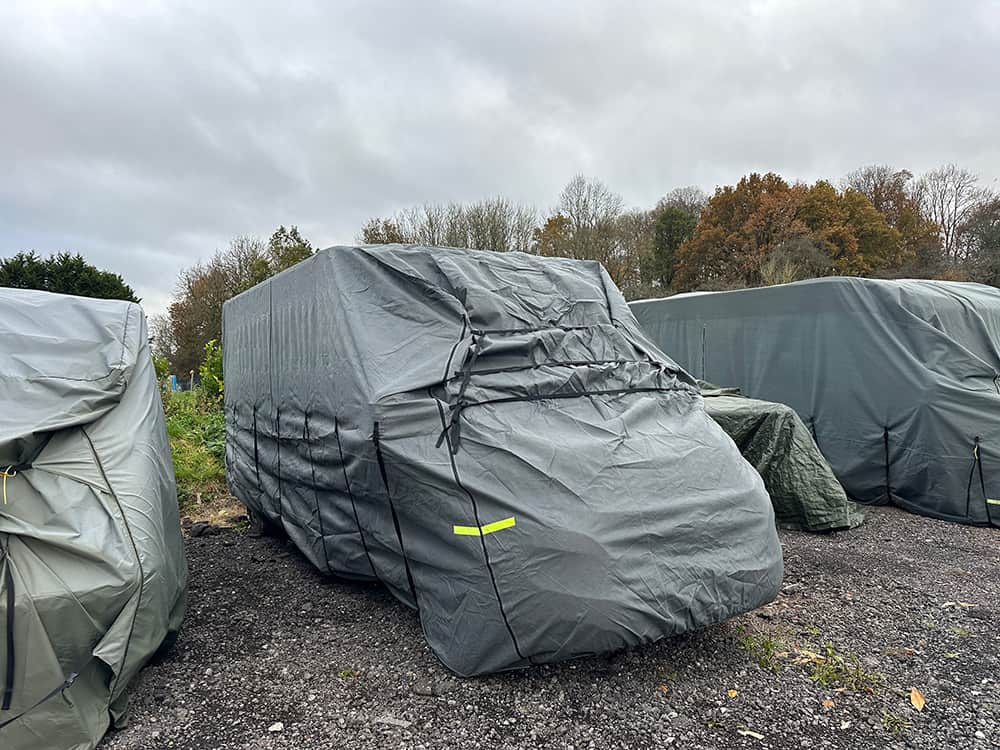
We have a 5th wheel Celtic Rambler RV pulled by a Merc X350. It’s a very stable and comfortable rig.
Do you include these vehicles in your columns? In particular references to wild camping, Wales Way routes etc.
It would be great to hear from you in this.
Regards
David.
Hi David. Sounds like a great set-up. I don’t have any experience with vehicles like that, so don’t include them. Without knowing the size of the vehicle, my concern would be ease of navigating small country lanes.